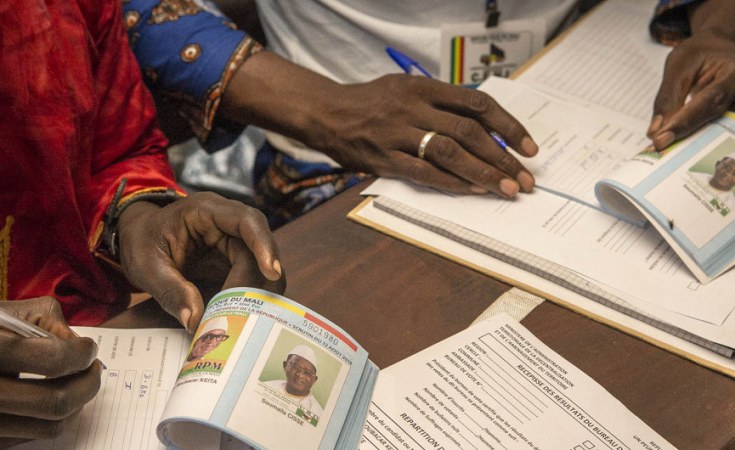Malian voters overwhelmingly approved changes to the constitution in a referendum held on 18 June, but the low turn-out and absence of participation of the Tuareg rebels in the North are among the many remaining challenges, along with major security issues.
Mali's electoral authority said that 97 percent of the referendum votes were cast in favour of the changes.
Voter turnout was put at 39.4 percent in the landlocked Sahel country, but according to experts it could be as low as 13 percent.
Mali referendum results to change the constitution:YES 97,06%NO 2,94%TURN OUT 39,40%How credible is the results?Our story during the vote:@magalirochat @AJEnglish pic.twitter.com/TFwCF4MAp1-- Nicolas Haque (@nicolashaque) June 23, 2023
While the election was held on 18 June, the results were only announced on Friday evening.
Voting was marred by incidents and irregularities, according to observers and opponents of the reforms.
Reports show that the vote was near to impossible in the Northern region of Kidal.
Influential religious figures, including prominent imam Mahmoud Dicko, also complained that the new constitution retained a clause defining Mali as a secular state.
Reinforced presidential role
The junta leader, Colonel Assimi Goita, has made the draft constitution a cornerstone for the rebuilding of Mali, a key step in the ruling junta's declared plans to restore civilian rule.
J'ai rempli mon devoir citoyen ce matin, accompagné du ministre de la justice et du Pdt de l'AIGE. Je suis convaincu que ce référendum ouvre la voie à un Mali nouveau, fort, efficace et émergent, mais surtout un Mali au service du bien-être des populations. pic.twitter.com/NTqRd8j7kx-- Colonel Assimi GOITA (@GoitaAssimi) June 18, 2023
The vote was the first organised in the western African country since the military seized power in August 2020 in a coup; overthrowing Mali's last elected president, Ibrahim Boubacar Keita.
The new constitution will strengthen the role of the president.
Opponents of the plan believe the vote was designed to keep the colonels in power beyond the presidential election scheduled for February 2024.
Most of Malian political analysts say they expect the junta leader to run for the job.
"To me, this referendum is a fiasco", one analyst told RFI. "Most people didn't bother to go voting, or simply could not. And the junta is obsessed with power and they just want to bring a fake legality to their electoral process."
Like many Malian analysts, he wished to remain anonymous, fearing the junta's backlash.
Major security concerns
Mali has been struggling with an 11-year-old jihadist insurgency, and is facing a deep, multi-faceted crisis.
The insurgency then spread to the whole Sahel region, in Niger, Burkina Faso, western Niger and even, more recently, to the north of Côte d'Ivoire.
The referendum results come as Mali and the United Nations prepare to discuss the future of the UN's decade-long peacekeeping mission in Mali, MINUSMA, on 29 June.
Two days before the vote, the junta called on the UN Security Council to pull out the 15,000-man MINUSMA force immediately.
According to them, the mission had failed in its task of providing security. MINUSMA's mandate expires on 30 June.
The UN and the United States have expressed deep concerns about this decision.
The ruling military has also fallen out with France, Mali's former colonial ruler, which provided peacekeeping troops for decades but has since withdrawn them.
Meanwhile, the junta has deepened ties with Russia and brought in Russian paramilitaries from the infamous Wagner group.


